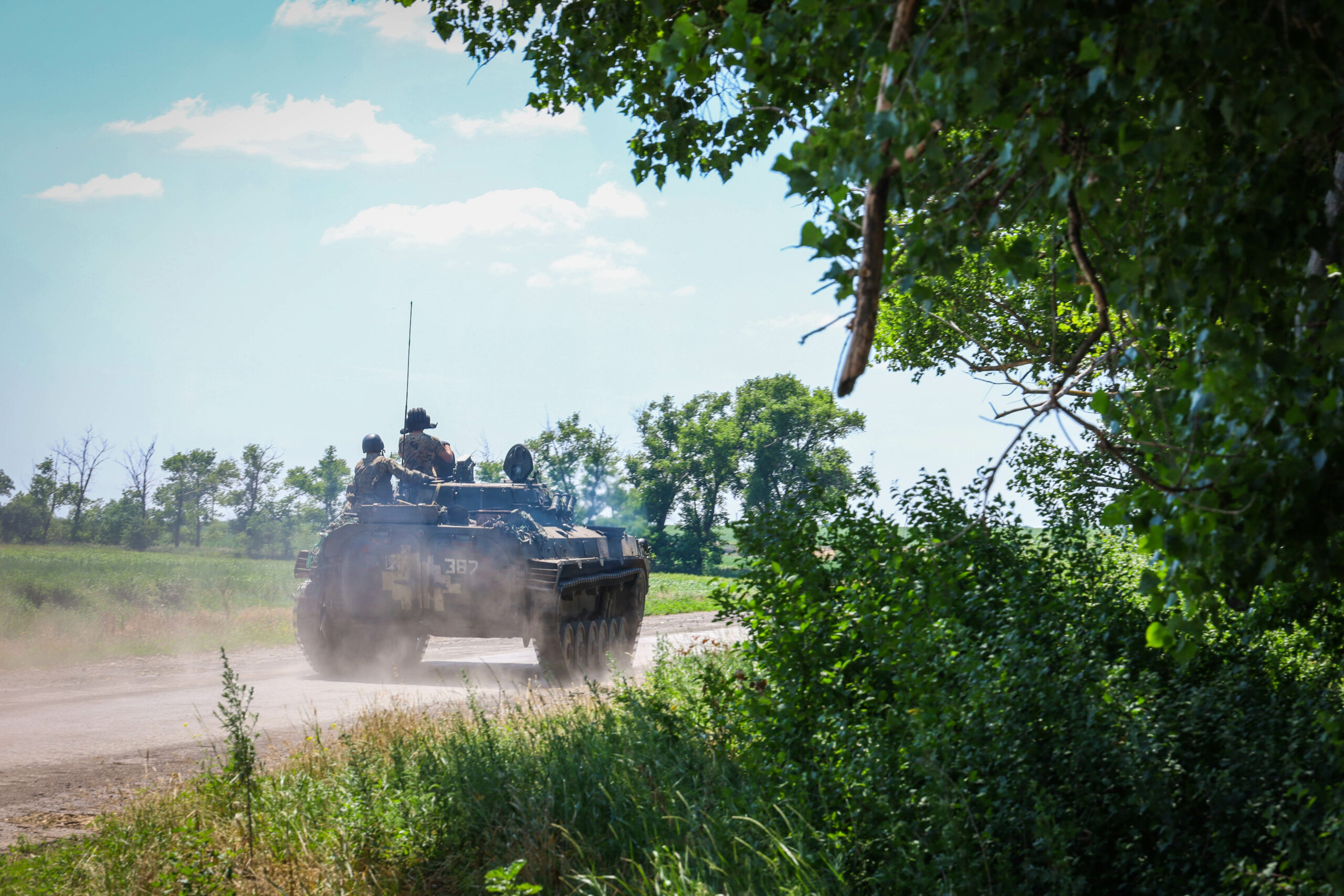
“My conscience is clear. And hands? I will scrub them off.” Reportage on how the 93rd Mechanized Brigade Kholodnyi Yar fights
Text and images by Olena Maksymenko
A car, very beaten up by life, is driving over the potholes in the combat zone of Slobozhanshchyna.
— The brigade’s name Kholodnyi Yar is linked to Ukraine’s history. Kholodnyi Yar is a relict forest which became home to Ukrainian national resistance, the Haidamak movement, and then the Kholodnyi Yar Republic. National liberation movements were constantly raging there, says Iryna Rybakova, the press officer of the 93rd Separate Mechanized Brigade Kholodnyi Yar, call sign Ryba [Fish — tr.]. — Therefore, we keep fighting.
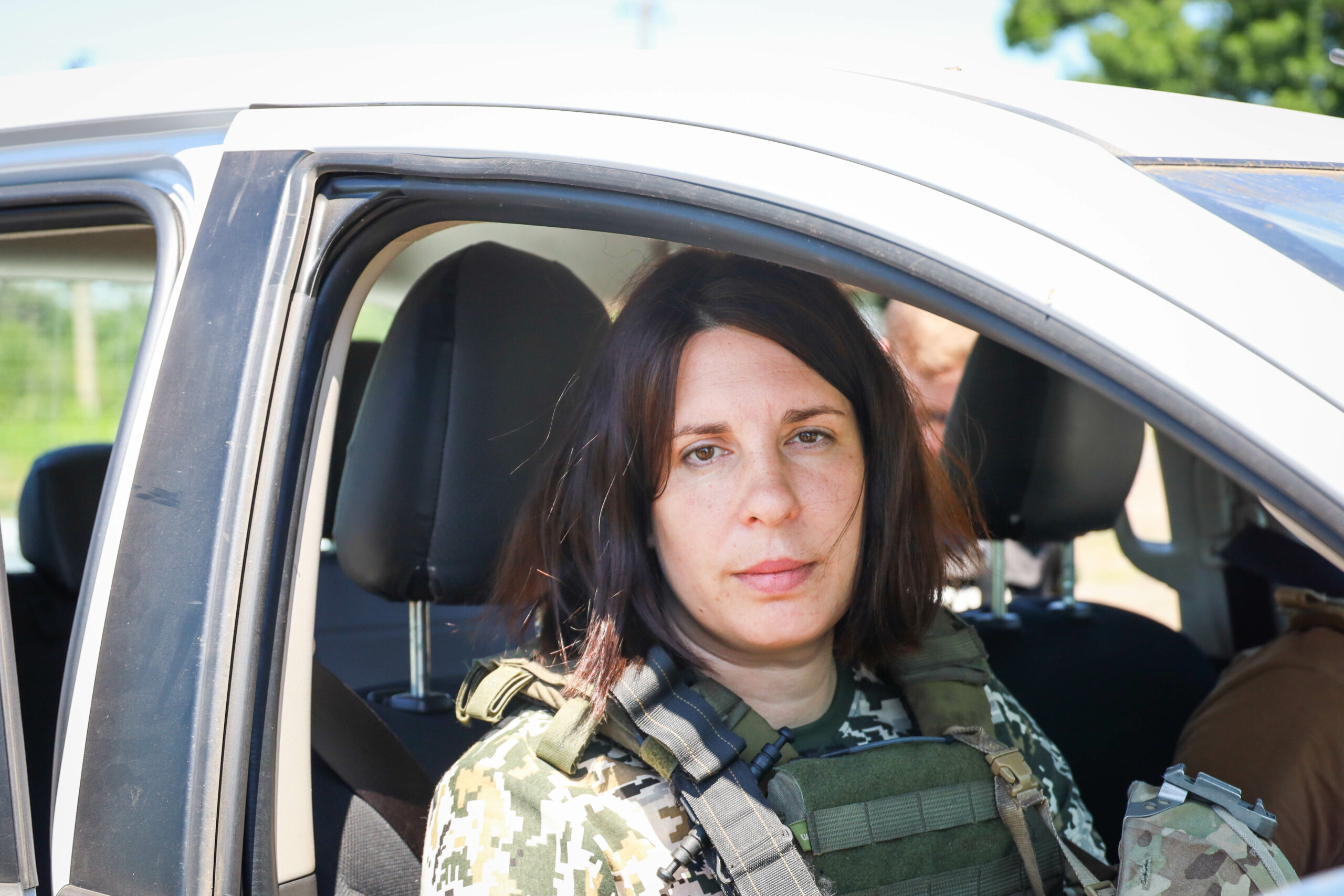
Iryna “Ryba” Rybakova, the press officer of the 93rd Separate Mechanized Brigade Kholodnyi Yar. Photos: Olena Maksymenko
Kholodnyi Yar [the Cold Ravine — ed.] became a concept that goes beyond geography and history. It reaches the level of an archetype, a symbol of resistance in Ukraine. We are going to the brigade’s position to see how this tradition continues.
The Brigade dates back to the Independence of Ukraine
— On the 24th [of February, 2022], our guys entered Okhtyrka city, took up their positions, and within a few hours the Russian military columns started entering. Our infantry and anti-tank units smashed them. One young lad was shouting: “I killed a Russian officer!” As a matter of fact, there was a dead body lying there… Not only was he a Buryat wearing the Russian pixel camouflage, but also a lieutenant — so that was a real combo! The dead bodies were simply dragged to the side of the road and covered with soil, so that they wouldn’t foul the air. There also was a pile of burnt equipment, says Iryna, while we are taking a bumpy ride on the damaged road.
The brigade distinguished itself in the most horrendous moments of the Russo-Ukrainian War since as early as 2014, including the Battles of Ilovaisk, Debaltseve, Donetsk Airport, Pisky, Avdiivka Area, Novotroiitske, Krymske, Novotoshkivske, Triohizbenka… After a full-scale invasion, the Kholodnyi Yar members reached the Sumy and Kharkiv areas of the front. Sumshchyna was soon completely cleared of the invaders; it all worked out well. Liberation of Kharkivshchyna is half done. And so we are heading to the positions around Izium City [in Kharkiv Oblast — ed.].
During our entire journey Ryba does not let go of her phone. She is constantly in touch — the news people call her one of the best press officers for good reason. Back in the old days Ira used to work as a journalist. From December 2017, she’s been with the Brigade. Before that, she was a volunteer fighter in the Carpathian Sich Battalion.
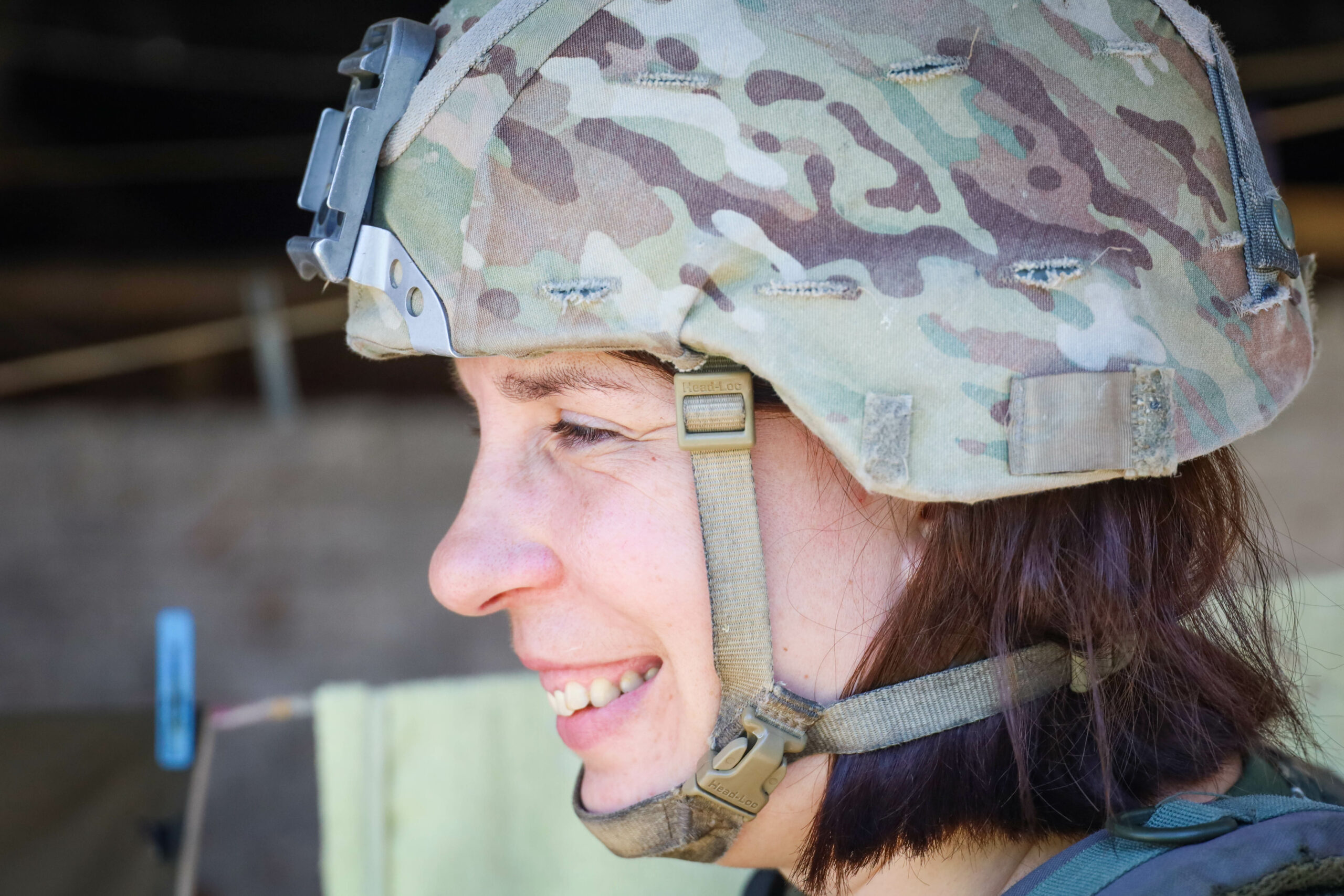
— The Brigade [stems] from the 93rd division, which was created back in WWII. Already by the Independence of Ukraine it had become a brigade, and in 2018 it was awarded the honorary title [Kholodnyi Yar — ed.], says Ryba.
Iroquois on the warpath
We hide our car in the bushes, and cover the remaining part of our trip on foot. The brigade’s positions could resemble a summer camp if it hadn’t been for the background noise of constant incoming missile strikes. Jars with pickled vegetables, socks on the washing lines — all form an almost peaceful summer landscape.

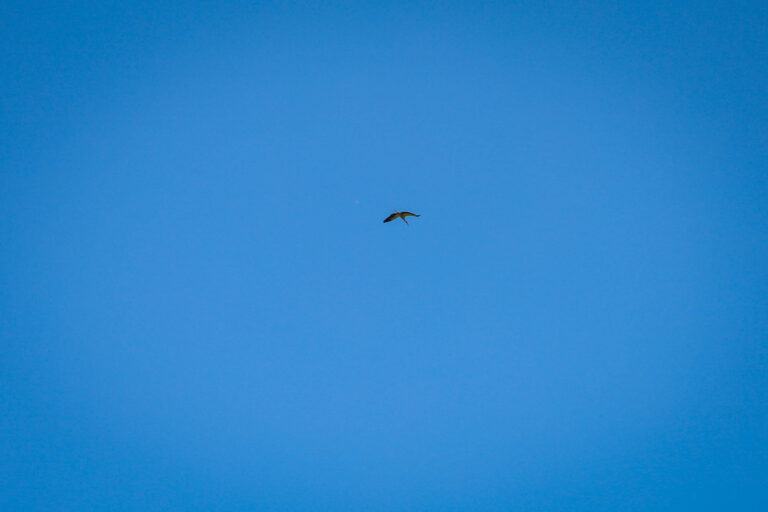
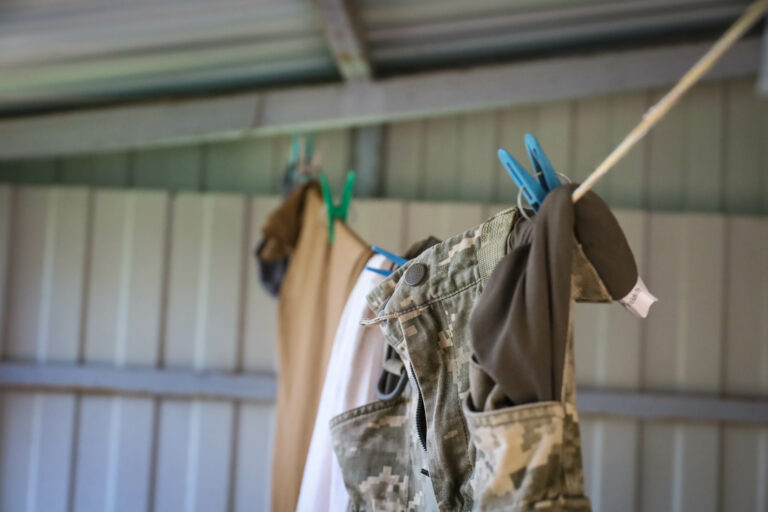
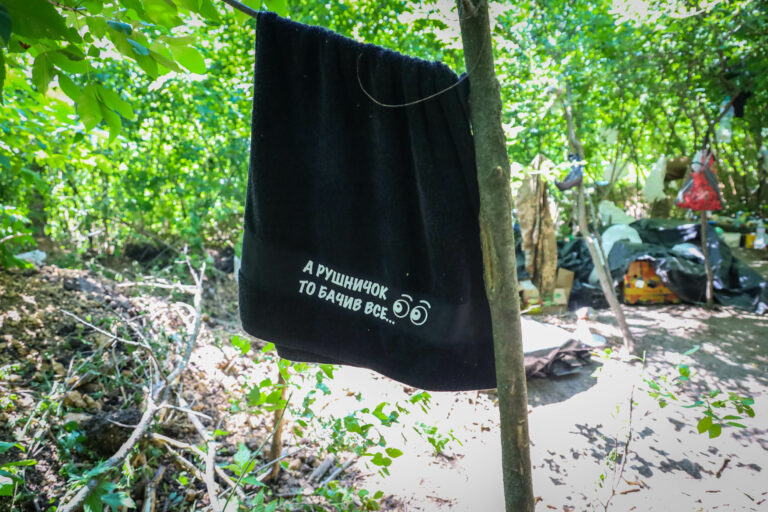
slideshow
A fighter with the call sign Iroquois [Mohawk — tr.] does not allow us to take pictures of his face. And not because he has some top secret role, but because he doesn’t want to get busted by his Mum. Even though he has been fighting since 2015.
— I have been wearing a mohawk haircut since my freshman year, since 2011. Before the war I studied at the university. First, in the pedagogical one, I studied to be a chemistry teacher. In the second year I realised that I wasn’t coping well with this whole thing — when organic chemistry started, those formulas were like a full page of mumbo jumbo! I took back my documents and entered the agricultural university to become an engineer technologist. I graduated from the agricultural university following extramural study, explains Iroquois.
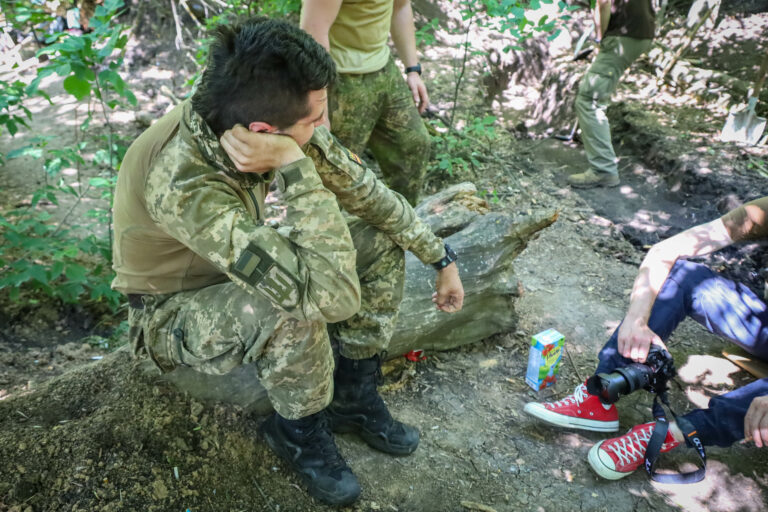
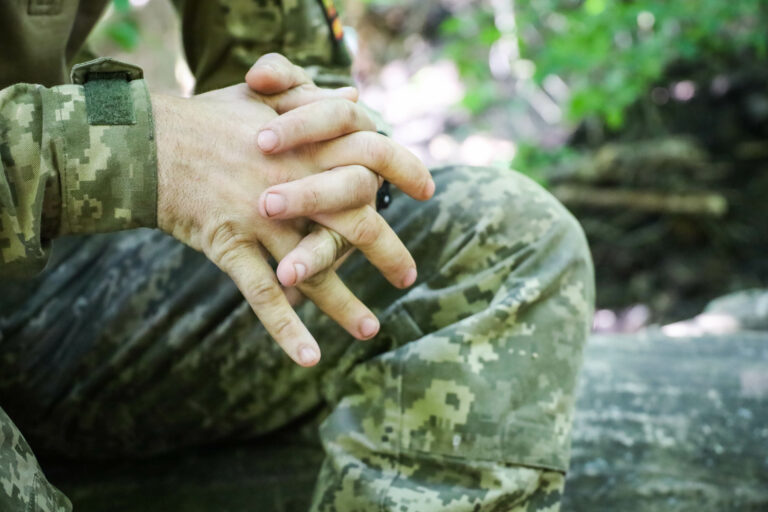
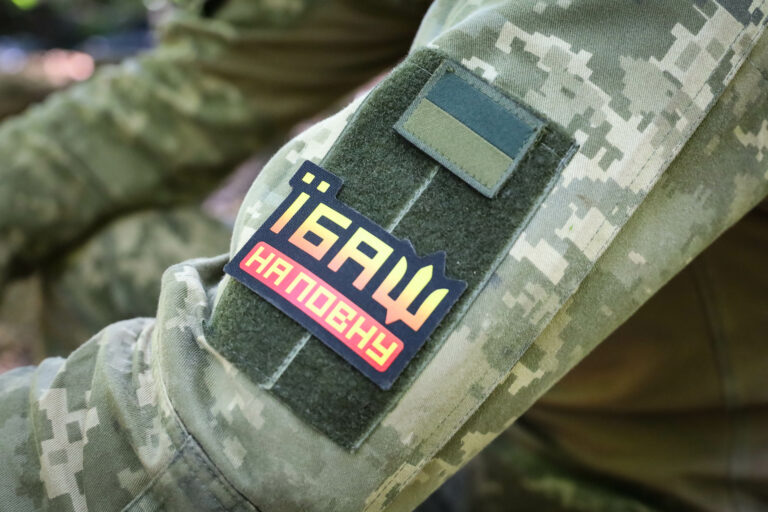
slideshow
At first he fought in the OUN (Organization of Ukrainian Nationalists) volunteer battalion. The 93rd brigade was stationed nearby, and one day the platoon commander invited the fellow: “Go ahead and join the army! Everything is exactly the same, but you are getting paid!” “Holy cow!…” the guy wondered, and signed the contract. Since then, most of Iroquois’ life has been military service. He had a one year-long break, and then another one for three months. Now he is an acting platoon commander as the commander has been wounded.
Another series of explosions is heard.
— It’s not [directed] at us. This is, most likely, [fired] towards Barvinkove, he comments lazily. — Or they might pour in some shells for us too.
We are discussing the beginning of the full-scale invasion.
— The Armed Forces have set off in advance in order to protect the state border — now, I believe, it’s no secret. On the 19th [of February], I would say, we were off. We came to the forest. And on the night of the 23rd at 1:30 a.m. we got up, boarded the vehicles, and drove off to the state border. And there goes the most vivid memory: we are driving an infantry fighting vehicle, our mortar battery is accompanying us, all around — the cars of [fleeing] civilians are mixed in, and [Russian] missiles are flying above us.
The conversation is interrupted by the command: “F*cker in the sky!” This magic chant is passed up the chain. Translated from the military parlance, this means that an enemy drone is circling above the strip of a planted forest. The guys explain that we’re invisible from here: they’ve specifically checked it themselves while launching their own UAV. But it is not advisable to leave the “greenery.”
Seneca and Sakura
On the very first day, the members of the 93rd Brigade took two prisoners, who later became the characters of numerous memes, from Military Unit 91701 of Yampolsky Motorised Rifle Regiment.
In March, in an extraordinary battle the Brigade liberated Husarivka Village in the Kharkiv region. In Sumshchyna they won back a number of villages around Trostianets, and, eventually, the city itself. The territorial defence fighters and local partisans helped them. The war has been fought not only in the fields, but also online: the civilian men and women of Sumshchyna through a chatbot reported [to the Ukrainian military] the enemy troops’ movements.
— Wherever the enemy troops concentrated, our guys were smashing them straight away, recalls Iryna Rybakova.
But military success has a flip side to it — casualties.
— It is hard to lose those whom you have known for years. They are lion-hearted, they innovate very well, they know how to organise an army, they know everything, explains Ryba.
One of the most painful losses is Roman Ratushnyi, also known by the alias Seneca, a public figure from Kyiv, a journalist, an activist, who was protecting Protasiv Yar, a historic land, from real estate development. Ivan Mishchenko, the Supreme Court Judge, is also fighting here; his call sign is Dredd. He was the one who gave a final ruling that allowed for the protection of Protasiv Yar. After that case Judge Mishchenko and Ratushnyi stayed in touch, and when the invasion started they went to war together.
Another great loss is an intelligence officer Oleksandr Feshtryha, called Sakura.
— Such an awesome dude!, recalls Rybakova. — He was missing seventeen of his teeth and an eye; he had a piece of shrapnel in his brain that had not been removed; a part of a muscle was also missing in his leg… And yet he used to run marathons, and was a boxer. The only thing he did not do was sparring: he used to say that if he was hit on the head, that piece of shrapnel could dislodge, and he would die. That is why he only participated in competitions as a referee, and also coached people. He was very sporty. He used to wake up at 5 a.m., then did a five kilometre jog, rain or shine. And once a week he’d run a marathon. He was appointed as a Sergeant Major of the brigade’s intelligence troop. People looked up to him.
Out of the encirclement, and across the river
The war for Slobozhanshchyna goes on. The 93rd Brigade was forced to retreat from the villages of Velyka Komyshuvakha and Zavody. It is a few kilometres westward from Izium, which is occupied by Russians.
— Between us and the enemy now are only Velyka Komyshuvakha Village and a small swampy river. Naturally, we blew up the bridge, and now they do not have either strengths or means to proceed with active combat right here, in our direction. The fighting at the moment is mostly artillery duels. We add our two cents as we can, says Iroquois.
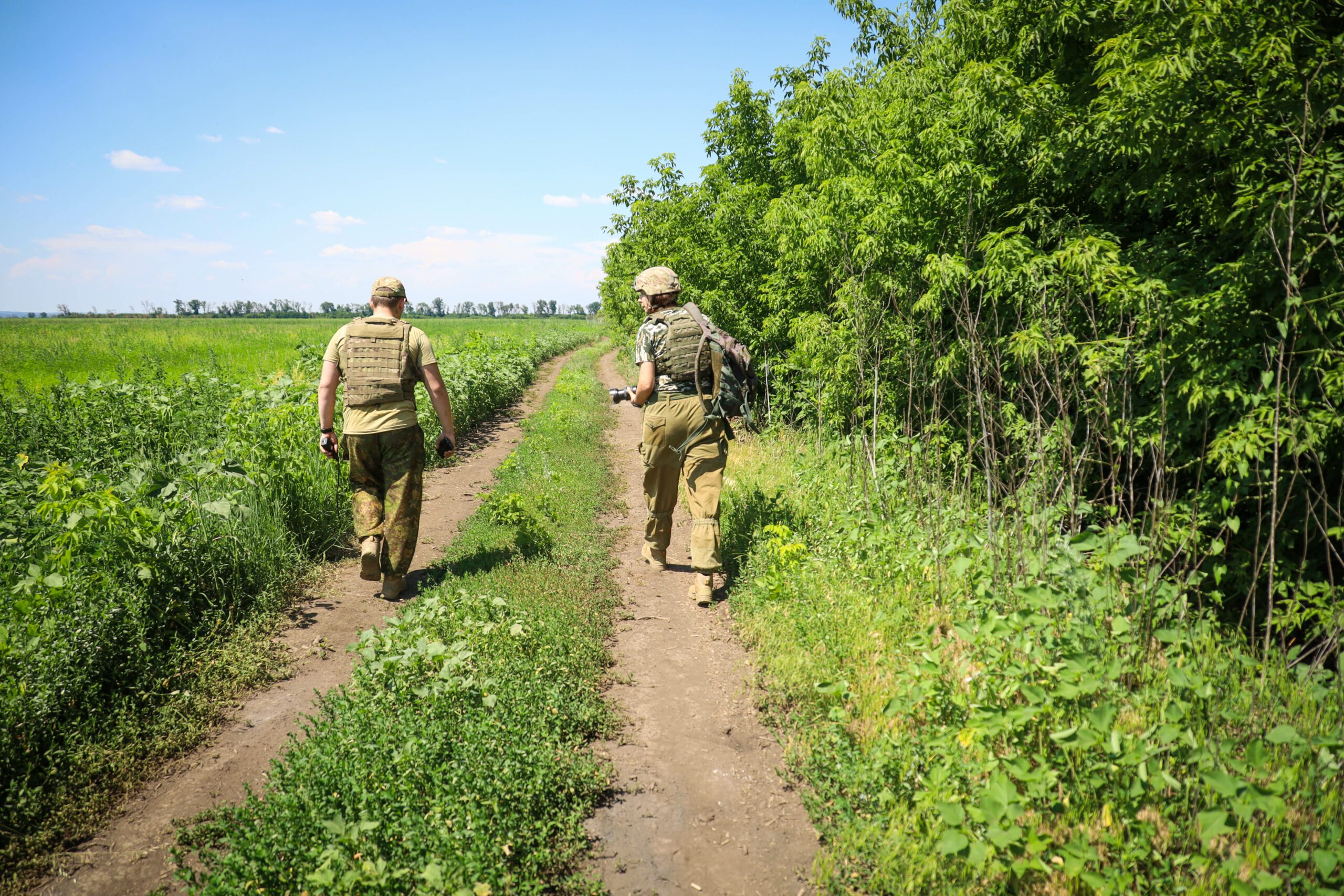
The battle for Zavody in April is a separate page of the war epic. According to Iroquois, two mechanised platoons of the Ukrainian Armed Forces held back the attack of as much as two Russian mechanised companies for four days.
— We took up positions in the wooded area at the edge of the village. The fact that there was a ditch across that wooded area helped us a lot. We held onto that ditch, entrenched ourselves in it. Russians would come at us with a tank, either our tank shows up and knocks their one out, or we blow up that tank ourselves.
The attackers would be like, “Oh, the tank is on fire!” — end of story, they skedaddle. As soon as they retreated, they’d hit us quick and hard with their artillery for two hours, and then would attempt to advance again. We had four days like this, non-stop. Well, except for the night. At night they just kept shooting to keep us awake.
In Zavody Iroquois’ group had casualties. This is why the 9th Company replaced them, and it also managed to hold its positions for four full days.
— All the things were exactly the same for them, as they were for us. It was not till those idiots smartened up, (that they) realised that there’s no need to go at us head-on, and started trying to outflank us from the right.
The Russian company commander made a mistake, and his squad got lost. This became clear from radio intercepts. The Russians accidentally got stuck between factories and Komyshuvakha, and thus blocked the way for the 9th Company. That’s why the guys had to retreat by crossing the river.
Rybakova recalls those events from her perspective. She controlled the retreat of another company, which also found its way through the waterway. She says there was almost no information about the guys.
— Sid was leading seventy people from the encirclement. They waded and swam. The equipment was left behind. It was very hot action over there! They were dragging the wounded with them, getting in touch with me, I was calling the battalion commanders, so that the guys were not blasted by our artillery. Since they got themselves into a “wedge” between the fighting parties they pushed their luck and risked getting under friendly fire… In my car seven people were rescued, who had been travelling on foot since 6 a.m. until night, past the positions of the Russians. Somehow they managed to escape, coming out under the shellfire. All of them were shell-shocked, someone grazed his knee so hard that he had to have his joint replaced. They simply made their way onto the Komyshuvakha–Barvinkove road, and we picked them up from there. The shooting was horrific, Ryba recalls.
“My conscience is clear. And hands? I will scrub them off.”
A young man comes at Iroquois’ call. It appears he’s questioning why he was called.
— I call you a heroic hero, the acting commander is trying to introduce the guy to the journalists.
— Hey, where are you going? A young schlepper [dum-dum — ed.] he is. How many people have you bandaged and pulled out?
— Erm… Four severely wounded… And eight in total!
Kyrylo, a platoon combat medic, with the call sign Aibolit, is feeling embarrassed all the while. He turns everything into a joke and tries to carry out a “tactical retreat.” The voice recorder and the camera cause him more discomfort than the dull “boom, boom, boom” going on nearby. But eventually he agrees to speak.
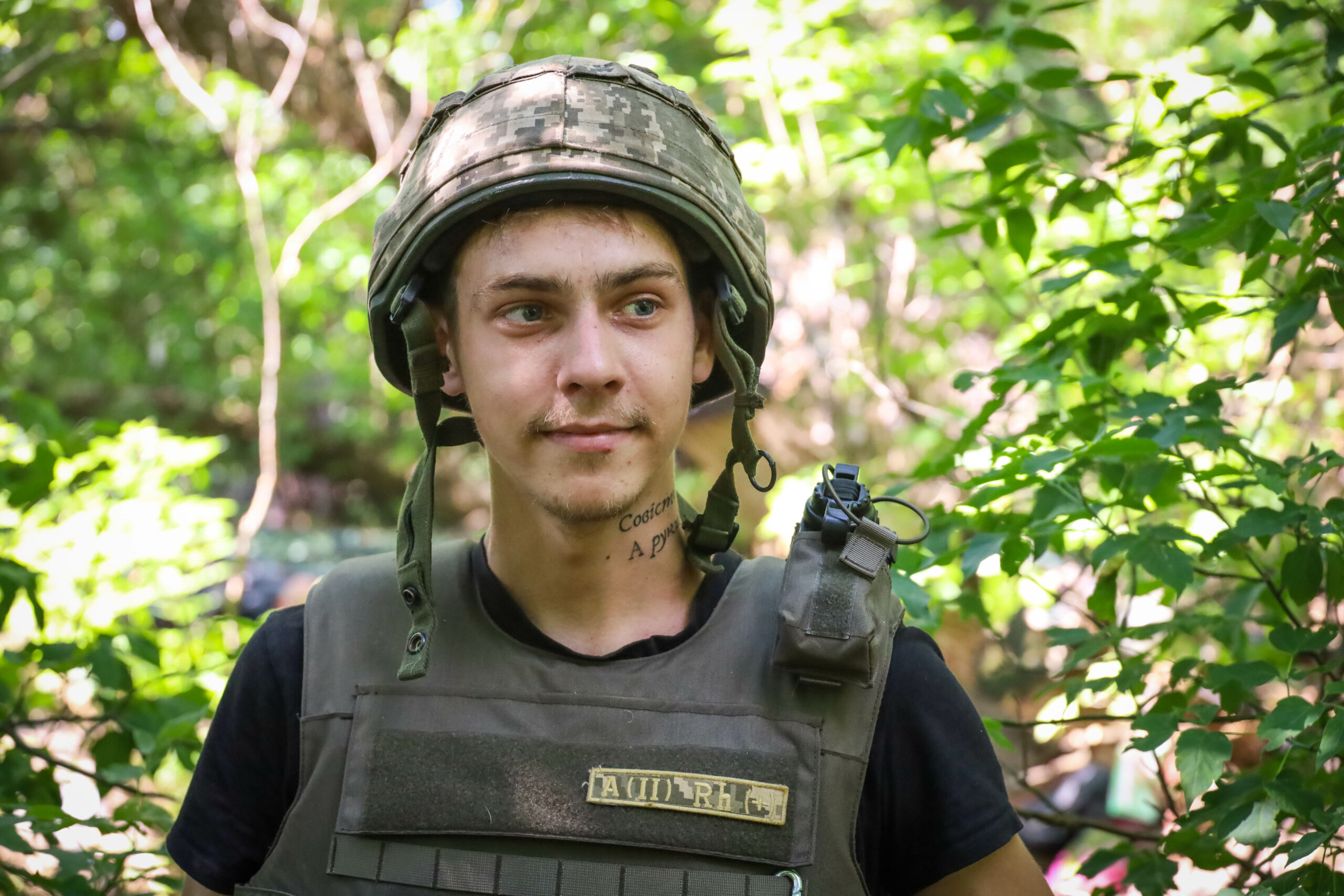
Kyrylo, a platoon combat medic, with the call sign Aibolit.
Kyrylo went to war after medical college. He’s been serving for a year and eight months, but only after the full-scale invasion did he see the wounded.
— Within three days there were seven wounded. Four of them were seriously injured. One died, didn’t make it. The first one to be wounded was the deputy company commander, a senior lieutenant. Iroquois had just brought me to the position, and then literally within half an hour there already was an incoming strike. The aid I gave was minimal — my mission was to keep him conscious, and send him to the next medical post, says Aibolit.
The first experience inspired the guy to get a tattoo on his neck, “My conscience is clear. And hands? I’ll scrub them off.”
— That’s how it is. Subconsciously. It is perceived that way. How shall I say… the rethinking of my entire life has happened. I think the war changed me for the better — I became more cautious. And it has removed unnecessary people from my life.
The most difficult, perhaps, is accepting the death of a friend.
After his military service is over, Kyrylo has no plans on staying either in the army or in the medical profession. He is actively denying such a prospect. — Enough, he says.
— I will serve my time, and that will be it. I gotta return to civilian life, to engage in other useful things. I will take over my parents’ business so that they may retire. They are quite old already.
Right beside us, despite the heat, a more senior fighter is intently digging a trench and picking on Aibolit:
— I have never seen you with a shovel!
— I’m digging at my end, don’t you start!, the guy talks back to him. — There’s such a cavern there that one can open a nightclub!
The generation gap does not get any closer:
— They sit around on the Internet, and as soon as the battering starts they run to hide where someone has sweated his guts! If, instead of two hours on the Internet… where they neither learned anything, nor did they improve their knowledge of the language, but they are just sitting — TikTokers!… So, if, instead, they would dig for a while, then perhaps we would have already won… So, maybe Elon Musk [and his Starlinks] has a downside as well.
— Oh, he’s just an “Old Man.” He knows nothing about new technology. He’s more connected to a shovel than to a phone!, retorts Aibolit. — I’m telling you, he’s already two hundred years old.
“Tank crews are the most arrogant of all.”
We are talking to Iroquois about weapons and manpower. They’ve got enough weaponry.
— When a tank appears, we begin to contemplate what should we use to fire at it? Should we take an NLAW, a MATADOR, or maybe an AT4?, the acting commander enumerates with gusto.
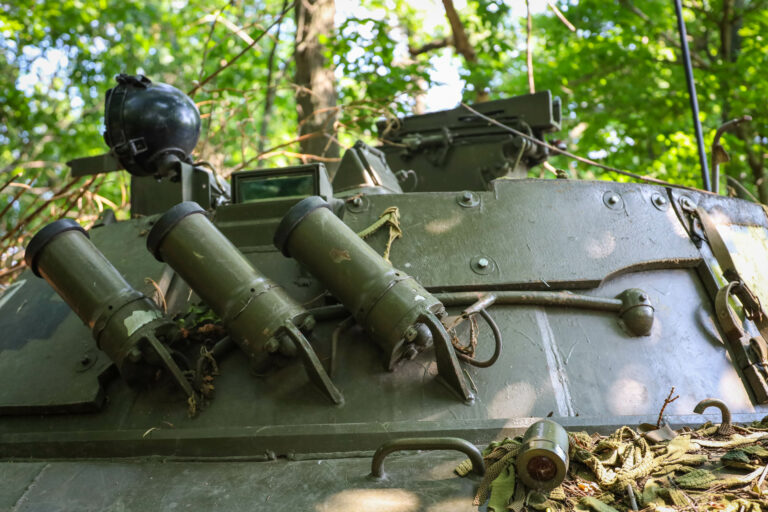
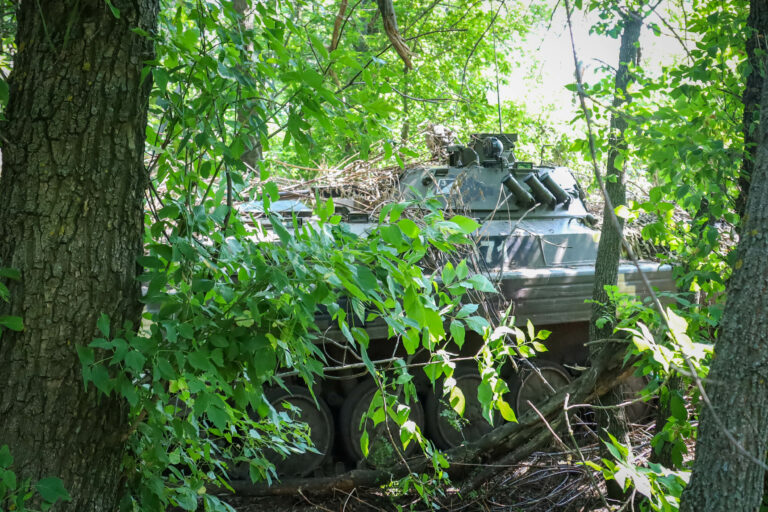
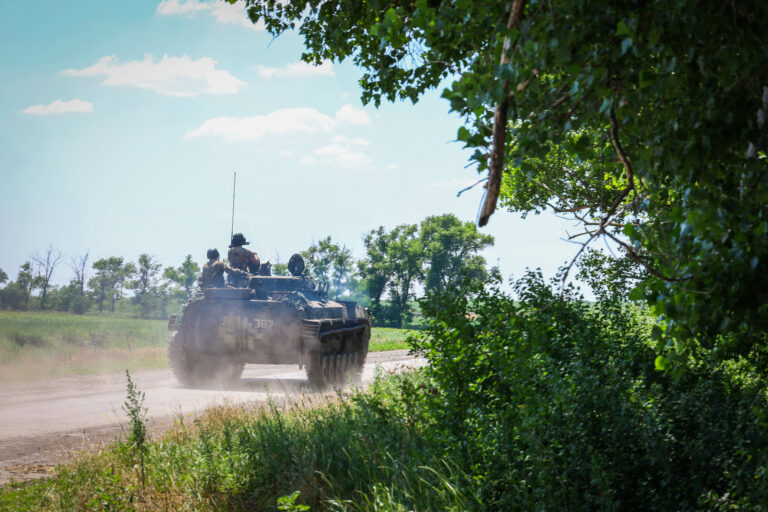


slideshow
The major challenge for Ukrainian forces is Russian artillery.
— To be more precise, not the artillery as such, but its quantity. Since they’re not very impressive shooters, they rely on the quantity to achieve their goals. They remove the artillery units from one of their BTGs [battalion tactical group — ed.] and throw it in the direction in which they want to advance. This isn’t rocket science. And it doesn’t take a great deal of courage. These are the standards of WWI. But one can make it right! You just make a swift move and quickly take on the enemy. The fact that we are a mechanised unit does not mean that we just jump into our armoured vehicles and pop at them. No, we can simply approach the enemy on foot, quietly. Come close, and start a shooting battle… There [in close action — ed.] the artillery’s capabilities are considerably limited: you either destroy your own people, or you shoot over both your own troops and the foes. Everything is easier in a shooting battle, because you can see: here is the enemy, here are my people, explains Iroquois.
There are many conscripts in the 93rd brigade. Among them are both battle-hardened people and new recruits. Iroquois shares his observations: older soldiers adapt more easily.
— Consider a rookie with no experience, who is, let’s say, 35 years old, and another rookie with no experience, who is 18 years old. The one who is 18 — things will be much more difficult for him. And for those older people: if they are told to sit — they sit, if they are told to shoot — they shoot! If artillery fires at them — they will dig up a small trench, and will sit in that trench. Those who came to the military enlistment office willingly, with an understanding of why they came there, they would fulfil their duties, no worse than a contract serviceman. We equate them and that’s it. What does one need to do to fire an NLAW? Release two safety catches, press one lever, wait for six seconds tracking the target, and press “start.” The one who can lift an NLAW will manage to deal with it! A 10-year-old can! Military equipment and ammunition are designed in a way that the users become proficient in operating it as quickly as possible.
Iroquois has every confidence that the Ukrainian army is capable of beating the Russian one.
— You can fight them. It is necessary to suppress their artillery, and they will fail such a battle. I’m not speculating — it has been learned first-handedly. Their infantry does not demonstrate any remarkable courage at all. If there is a tank — they might follow it. And at times they won’t even do that. Tank crews are the most arrogant and overconfident of all. Perhaps it’s because of those grill racks they’ve been fixing on their turrets.
Yet another series of explosions silences the conversation. The guys listen intently — most likely, the Giatsint gun is going off.
Iroquois confesses, after the victory he is unlikely to remain in the Armed Forces.
— I have already given them a lot of time. What to do then?.. No idea. I’ll live — we’ll see! I’ve been offered a book deal — I can hold lengthy talks full of vivid details.
Put an end to it
Unlike his brothers-in-arms, “Prince” joined the Armed Forces intentionally, having graduated from a military high school. And after the victory he does not plan to leave the service. He has been serving for two and a half years so far.
— I chose the army as a lifetime profession, so to speak. And why did I go to the 93rd? Because this is one of the strongest brigades in Ukraine.
Prince gained his first combat experience in Hranitne Village last year. Military personnel received an order to restore operations of a civil-military institution in one of the villages in the so-called grey zone. The blown bridge was repaired, and communication was restored. And for a week they held the fort there, out of sight of the enemy. The administration got their work done and left. Then the military withdrew as well.
— This is about when Bayraktar was introduced in Ukraine for the first time. It was used to cover my platoon, so that we could withdraw smoothly. The enemy was forced to cease all fire because they did not know what had happened. The D-30 Howitzer’s range is up to thirty kilometres, and yet they were attacked — out of nowhere, in an unknown way.
Prince says: “Any and all types of weapons are used in the war in Ukraine, apart from nuclear and chemical ones. Except the enemy has used chemical weapons in the Mariupol area.”
— What could we see in the Joint Forces Operation zone before the full-scale invasion? When there was an incoming strike of 12 calibre shells, we were like, ‘Oh boy! Wow!’ And what are we witnessing now? When a 152 calibre shell falls a hundred metres away from you, you think, ‘Bah! That’s nothing!’, because of the work of Iskanders, tanks, anything and everything. If we strive to reconcile with the occupiers [at this point two more epic explosions are heard — ed.], it won’t do us any good. In two, three, five years, it will happen again, no matter what. We have to end it all with this war. We have to put a decisive end to it shortly.”
The young man explains: nothing boosts morale like a destroyed enemy.
— Personnel feel the most motivated when they see the enemy guts on trees, broken tanks, that sort of things.
Prince recalls the battle against the Russian 200th brigade in the Derhachiv area, when the Russians marched in two columns to besiege Kharkiv. The occupiers were so overconfident that they simply sat atop the armour, “they marched along the road bluntly, suspecting nothing.”
— There was a wooded area perpendicular to the road. The commander of the 8th company [93rd Brigade of the Armed Forces of Ukraine] reported: they could see the vehicle movements in front of them. He made a decision to let the enemy come nearer. It was obvious that the enemy did not expect anything. The wooded area was quite large, 11 [Ukrainian] IFVs (infantry fighting vehicle) were standing there. The enemy’s column moved out in front of the barrels of the 8th company’s IFVs, reached the end — and the company commander ordered to open fire. And it was just like in a shooting range, Prince recalls.
The Russians dumped the bodies of their soldiers on the battlefield. They were in no rush to pick up their casualties.
— In the nearby village one can see that pigs just eat up their corpses, says the officer.
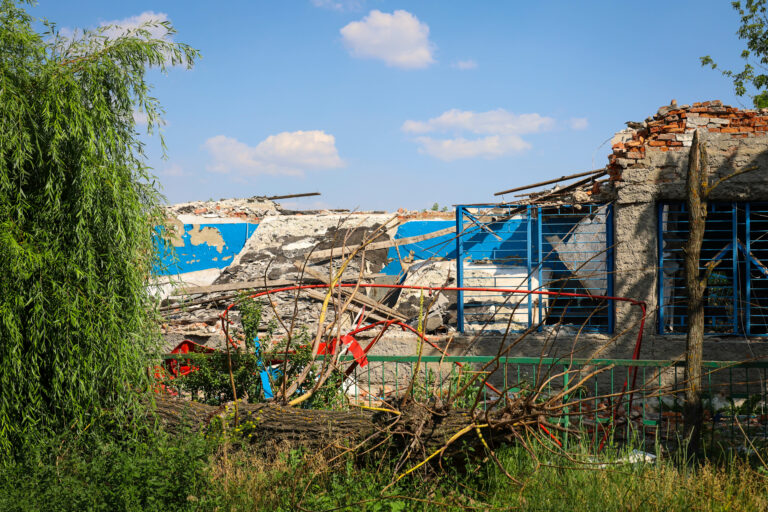
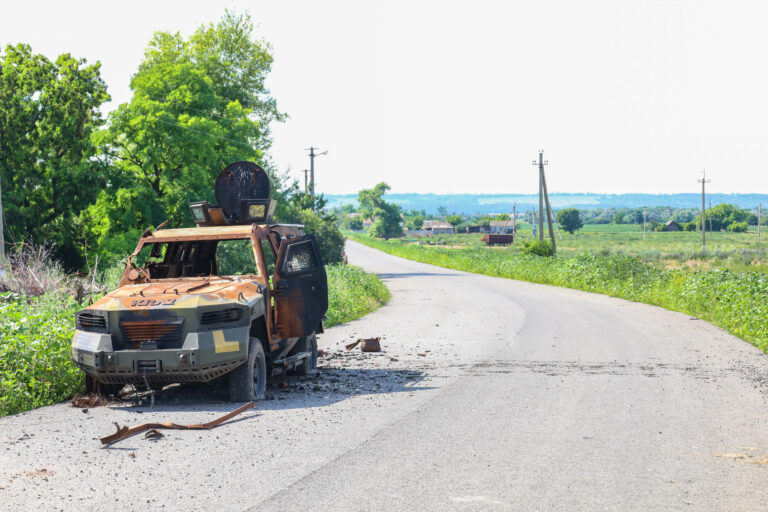
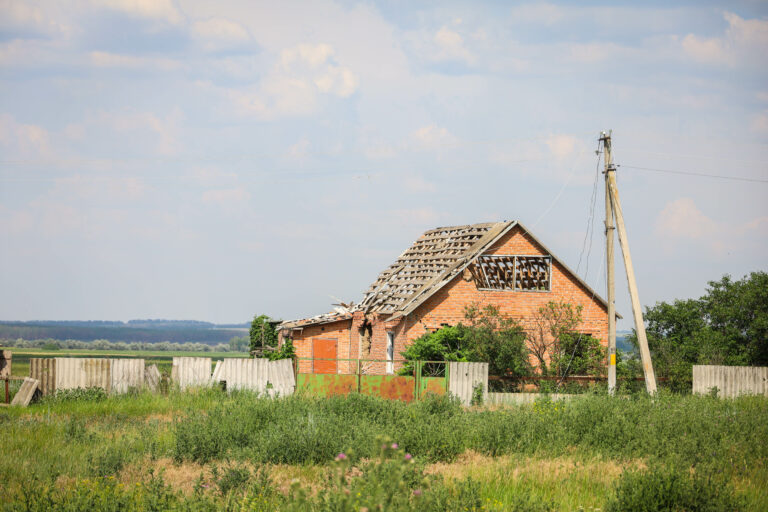


slideshow
In the surrounding villages, schools and kindergartens were “denazified.” There are carcasses of destroyed vehicles on the roads. The ones of the invaders and the defenders. Roses blossom on the ruins of the village huts.
— We are moving forward little by little these days, there are victories in every battalion, says Iryna. — Sometimes we arrive at the guys’ positions, and they have already packed and say that we have to move to the new location. We are moving forward… in the finest traditions of Kholodnyi Yar.

